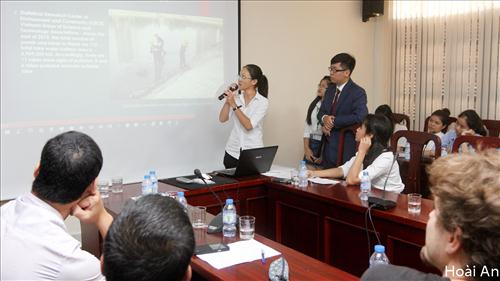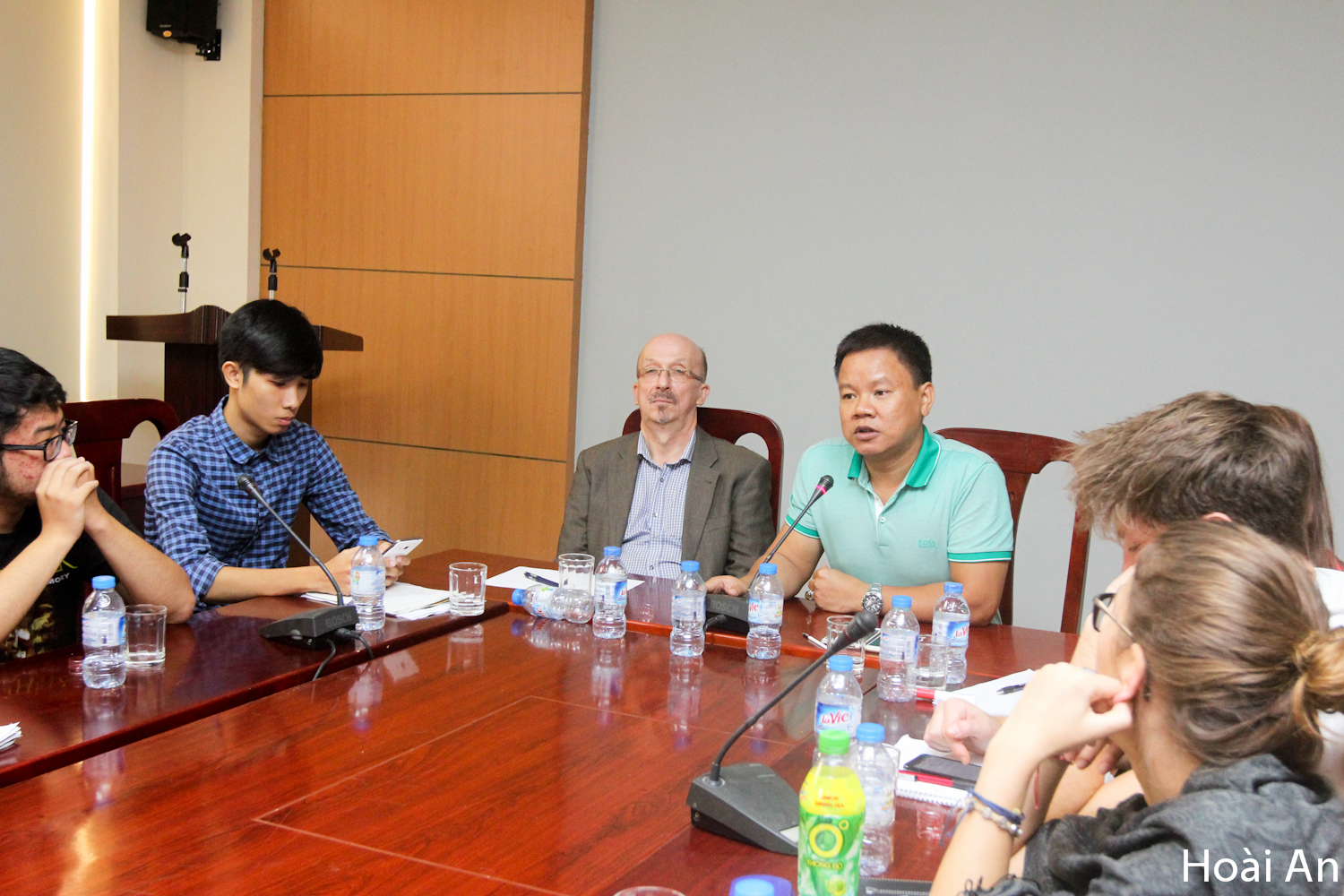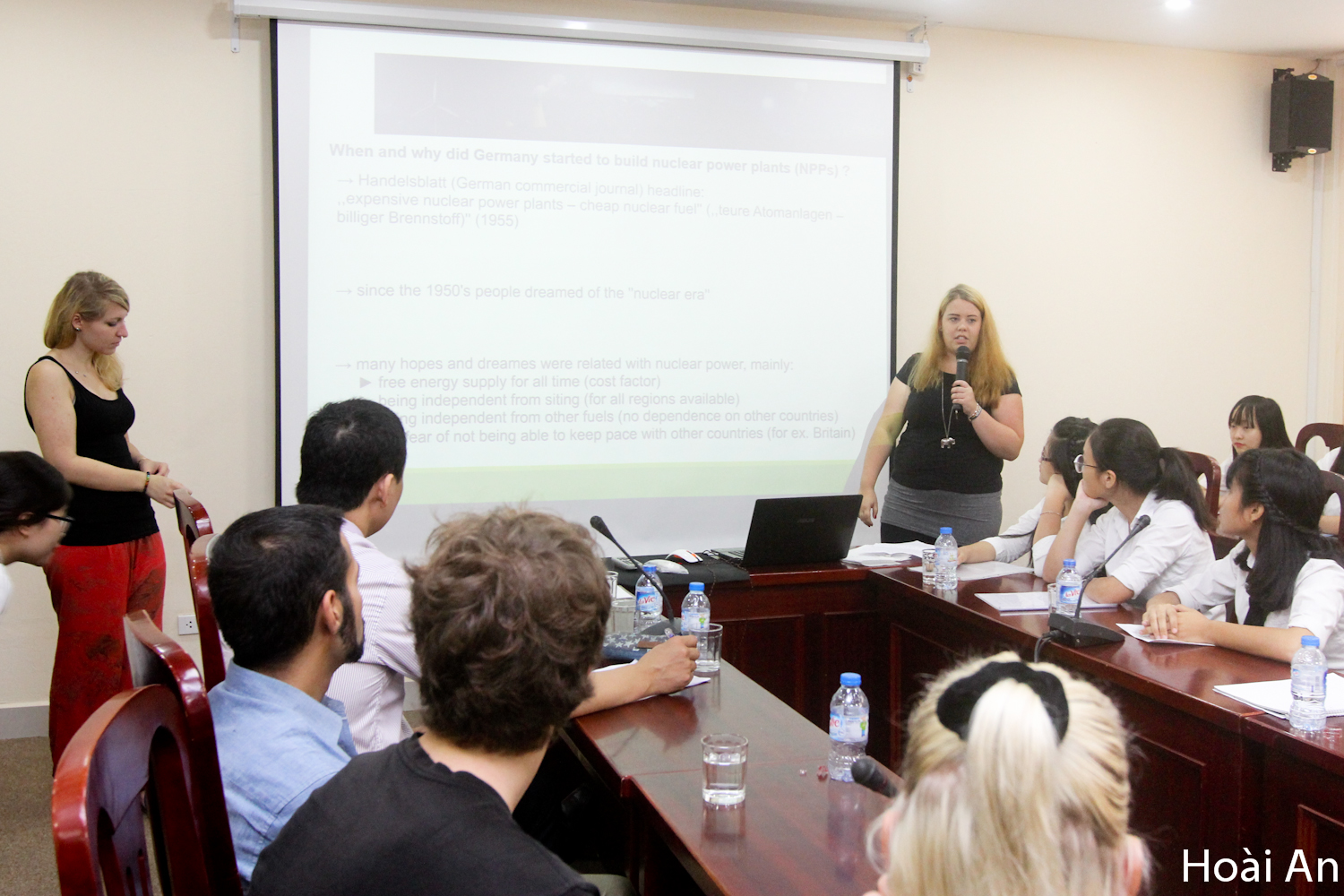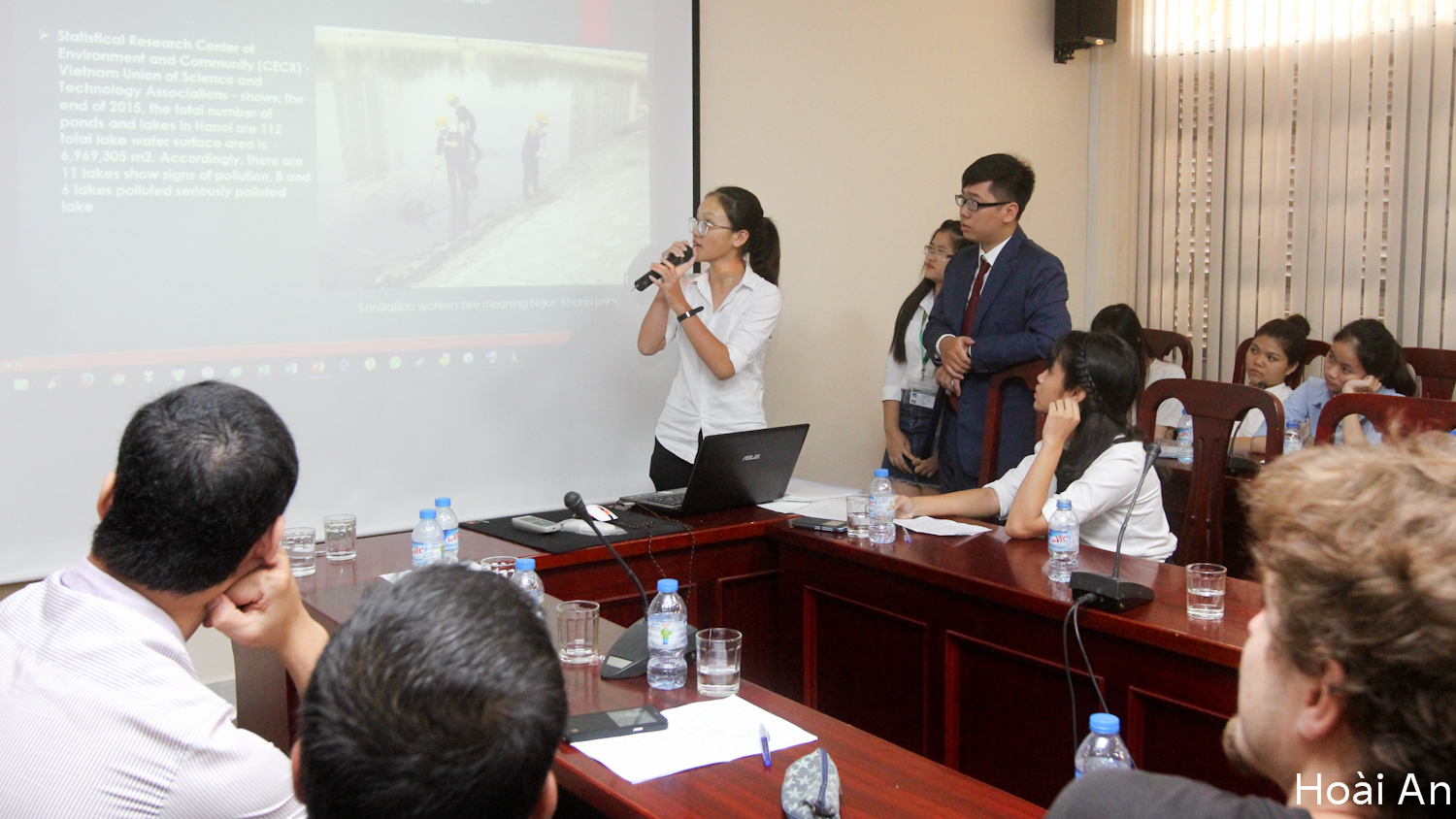
Some pictures of the academic exchange between students of the two schools
The program was coordinated by Associate Professor Dr. Lai Quoc Khanh, Deputy Head of the Department of Political Science and Professor Detlef Briesien, lecturer of history, University of Giessen, advisor of the DAAD fund (German Academic Exchange Service). The program was also attended by young lecturers, students of the Department of Political Science and students of the University of Giessen, Federal Republic of Germany. The language used in the academic exchange was English.

Assoc. Prof. Dr. Lai Quoc Khanh delivered the opening speech of the program.
At the beginning of the meeting, Associate Professor Dr. Lai Quoc Khanh, Deputy Head of the Faculty of Political Science, introduced some features of the Faculty of Political Science to students of Giessen University, Germany.
The Faculty of Political Science is a young unit, but the faculty has quickly affirmed its position in the University of Social Sciences and Humanities. Currently, the faculty has trained all 3 levels of bachelor, master, and doctor in political science.
The faculty focuses on political theory, domestic politics and international politics. In the near future, the faculty will develop a major in political communication. The achievements it has today are the result of the contributions of many international friends, including Prof. Detlef Briesien. Assoc. Prof. Dr. Lai Quoc Khanh hopes that in the future, students from the two schools will continue to have more academic exchange activities.

Presentation by German student group
After the opening remarks, the delegates listened to and discussed two presentations by students from two schools.
A group of students from the University of Giessen, Germany chose the presentation topic on environmental protection policy in sustainable development, a study for Germany and Vietnam.
The paper deals with the problems of nuclear power plants and alternative energy sources to nuclear power. Currently, Germany is experiencing waves of conflict on this issue. Germans are debating whether to continue maintaining the system of nuclear power plants?
This is due to the fear of nuclear disasters. For example, Germany used to be a hot spot for the Soviet Union and the United States, with so many nuclear power plants, German people feared that if there was a war and bombs accidentally fell on these plants, it would cause terrible disasters. The recent nuclear disaster in Fukushima (Japan) has further increased these concerns.

In Germany, there are currently about 11 nuclear power plants and according to the schedule, they will close all of these plants by 2022. And when the nuclear power plants are closed, they will have clean energy sources to replace them such as wind, solar, and hydropower. However, these energy sources also have many challenges in construction and implementation.
Many students' discussion points of view are that Vietnam's nuclear energy issue cannot be compared to Germany's, but the historical experience of your country has given Vietnam very important suggestions.
The presentation not only showed the audience the history of its formation, the benefits it brings but also the risks it can create, in fact it has also caused disasters. This has led to energy politics issues, creating some divisive risks in society: arguments between supporters and opponents.
In Vietnam, the development of nuclear energy is inevitable in the near future. It is expected that by 2020 there will be the first nuclear power plant, so it is necessary to research and learn from the experience of our German friends.

Presentation by Vietnamese student group
A group of students from the Faculty of Political Science chose the topic of environmental issues and some highlights of environmental activities in Hanoi.
In this presentation, the group of students from the Faculty of Political Science raised many hot issues about environmental issues in Vietnam in general and Hanoi in particular. From the current hot keyword phrase "fish-steel" to events such as cutting down trees, pollution issues in Hanoi... From there, they proposed policy solutions to solve environmental issues, towards sustainable development.
The presentation by the group of students from the Faculty of Political Science opened up many suggestions for discussions and suggestions for solutions for Hanoi in particular and Vietnam in general. From the perspective of German experience, the students from the University of Giessen raised questions and gave many useful suggestions for the group of Vietnamese students.
Author:Hoai An
Newer news
Older news